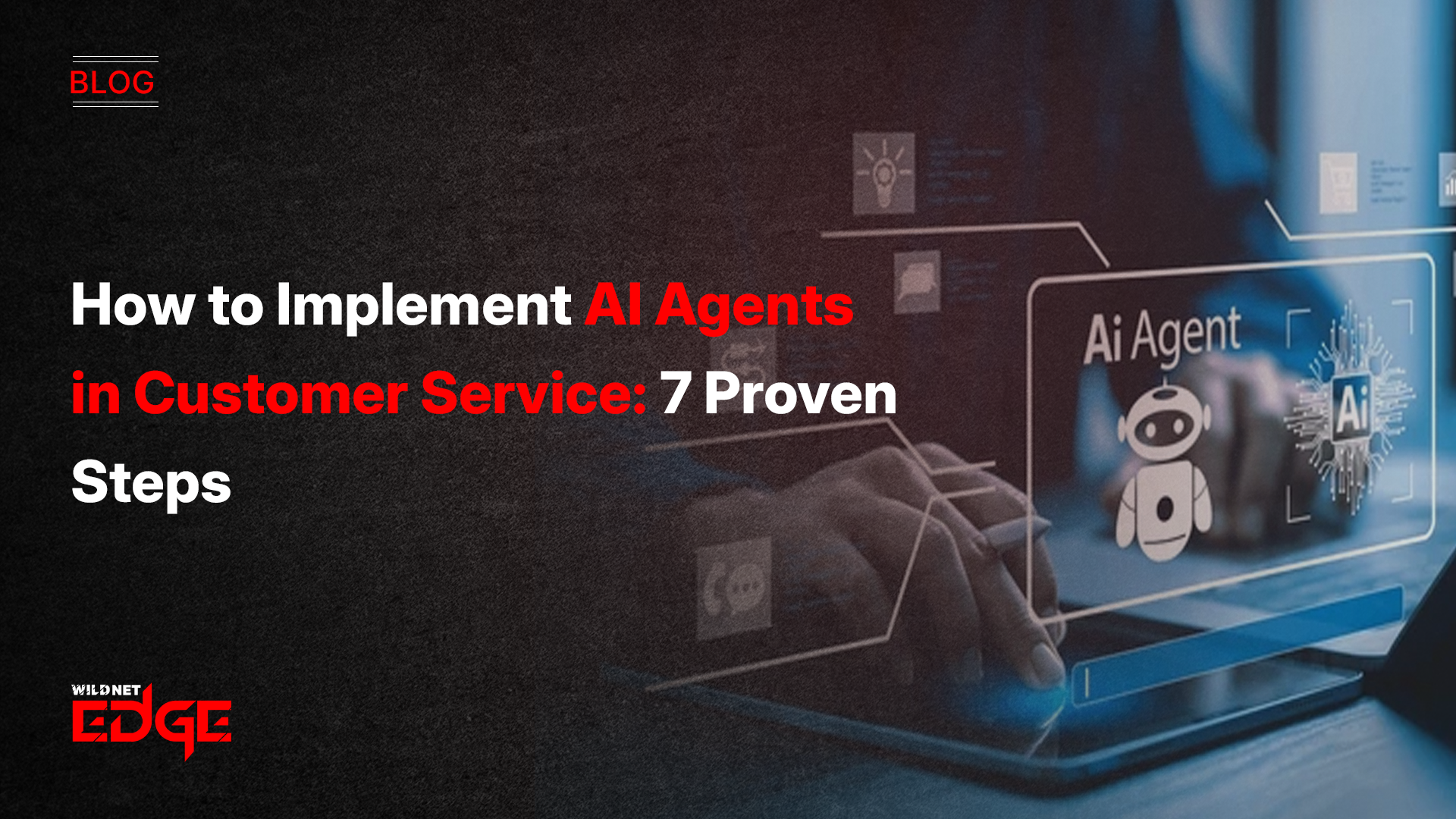In an era where technology reigns supreme, the finance industry faces a pervasive challenge: the need to stay relevant, efficient, and secure. With the constant evolution of financial landscapes, institutions often grapple with how to integrate cutting-edge solutions without compromising regulatory compliance or customer trust. Can AI be the answer to these pressing issues? As we explore the potential of AI in finance, we will unveil its applications, the hurdles faced, and the future it promises for the industry. This blog will serve as your guide to understanding AI challenges and opportunities in finance.
AI Applications in Finance
AI in finance is reshaping how institutions operate by automating processes, analyzing data, and enhancing customer experiences. The use of AI applications in finance is vast and varied, encompassing everything from algorithmic trading to smart contracts.
Types of AI Applications in Finance
There are several types of AI applications that have been integrally designed to address specific needs in the financial realm:
- Risk Assessment: AI models assess creditworthiness by analyzing vast quantities of data, such as transaction history and credit scores. They can identify patterns indicating potential default.
- Fraud Detection: AI systems continuously monitor transactions and user behaviors, identifying anomalies that may suggest fraudulent activity. For example, machine learning algorithms can flag unusual spikes in transaction amounts.
- Customer Service Automation: AI-driven chatbots and voice-activated systems have revolutionized customer service, providing immediate assistance and creating tailored experiences for users.
- Algorithmic Trading: AI algorithms analyze market data at lightning speed, executing trades based on identified trends. For instance, algorithms can leverage machine learning to adapt to real-time market conditions.
Real-World Examples of AI in Finance
To illustrate the potential of AI applications in finance, consider these real-world examples:
- JP Morgan Chase: The bank has deployed AI to efficiently review loans and analyze legal documents, saving hundreds of thousands of hours in paperwork.
- American Express: The company employs machine learning models to prevent fraud by analyzing user transactions in real-time, significantly decreasing fraudulent charges.
- Wealthfront: This robo-advisor uses AI to automate investment strategies for consumers, allowing users to benefit from theoretical investment strategies implemented by agile algorithms.
These examples highlight not only how AI applications in finance are enhancing efficiency and security but also demonstrating the expansive potential for more sophisticated financial products and services.
Challenges of AI in Finance
Despite its myriad applications, the adoption of AI in finance does not come without challenges. Financial institutions encounter substantial regulatory hurdles and data privacy issues as they strive to implement AI solutions.
Regulatory Hurdles for AI in Finance
Navigating the regulatory landscape is one of the biggest challenges for financial institutions considering AI integration. AI systems often lead to new questions about transparency and accountability:
- Compliance Issues: Regulations such as the General Data Protection Regulation (GDPR) in Europe impose strict guidelines on data usage and consumer rights. AI systems must be designed with these regulations in mind, necessitating additional development and oversight.
- Bias and Discrimination: Algorithms can inadvertently perpetuate existing biases present in the data they learn from. This is critical in finance, where biased decisions can lead to unequal access to credit or investment opportunities.
- Model Risk Management: Regulators expect institutions to manage the risks associated with their AI models effectively. This requires a robust framework for development, testing, and ongoing monitoring.
Data Privacy Issues With AI in Finance
As financial services increasingly rely on vast amounts of personal and sensitive data, data privacy becomes paramount:
- Consumer Trust: Customers are becoming more wary of how their data is used. If financial institutions mismanage data security, they risk losing customer trust and loyalty.
- Data Breaches: With AI models requiring extensive data sets, the potential for data breaches increases. Institutions must pursue advanced cybersecurity measures to safeguard information against threats.
- Anonymization Limits: While anonymization techniques can protect consumer identities, they may not be sufficient in preventing reidentification, raising ethical concerns about privacy and consent.
Addressing these challenges is essential for financial institutions to realize the full potential of AI without compromising on security and consumer rights.
Future of AI in Finance Technologies
As we venture into a future dominated by technology, the prospects for AI in finance are bright. Financial institutions are poised to continue innovative applications and integrations that redefine the industry landscape.
Predictions for AI in Finance
Several predictions concerning the future of AI in finance can help stakeholders prepare for what lies ahead:
- Enhanced Personalization: AI will enable hyper-personalized financial services. Imagine a future where AI advisors provide tailored investment strategies based on individual financial behaviors and goals.
- Increased Automation: Day-to-day processes such as compliance checks, HR functions within finance, and enhanced customer interactions will become even more automated and efficient through AI technology.
- Real-Time Decision Making: AI will empower financial organizations to make decisions instantly by analyzing real-time data. This will significantly enhance their ability to mitigate risks and seize opportunities.
Innovations Shaping the Future of AI in Finance
Various innovations are laying the groundwork for further innovations in AI within financial services:
- Natural Language Processing (NLP): This technology will improve customer interactions through voice-activated banking apps and AI-driven chatbots, making financial advice more accessible.
- Blockchain and AI Integration: As the marriage between blockchain technology and AI deepens, financial institutions will benefit from increased transparency and reduced fraud potential, alongside efficiencies in settlements and transactions.
- AI for Regulatory Compliance: Upcoming AI-driven tools can streamline compliance checks by monitoring regulations and automatically alerting organizations of changes, thus reducing the workload on compliance teams.
These innovations signify that the future of AI in finance will be shaped by ongoing technological advancements and a relentless focus on enhancing efficiency and security.
Role of Software Development Company in AI Projects
Successful AI integration hinges significantly on collaborating with a skilled software development company. These partners bring technical expertise and insights essential for executing AI projects effectively.
Selecting the Right Software Development Company
Choosing the right software development company is crucial for any financial institution looking to implement AI technologies. Consider these tips:
- Evaluate Expertise: Look for companies that have substantial experience with AI and finance. Their familiarity with the regulatory frameworks and industry standards will be vital.
- Assessment of Portfolio: Review the projects the company has completed to gauge their proficiency in AI application development. A strong portfolio can provide assurance of capability and innovation ability.
- Post-Implementation Support: Ensure that the company offers ongoing support and maintenance services post-launch. AI systems require continuous updating and monitoring, so dependable support is paramount.
Benefits of Collaborating with a Mobile App Development Company
In the realm of finance, mobile app integration is becoming increasingly important. A collaboration with a mobile app development company can yield numerous benefits:
- User-Friendly Interfaces: Mobile apps designed with UX principles in mind can significantly improve customer engagement and satisfaction, ultimately leading to increased usage.
- Integration with AI: Mobile developers can implement AI functionalities directly into apps, enabling features like fraud detection on devices and personalized financial advice, broadening the scope of product offerings.
- Increased Collaboration: Partnering with a mobile app development company can foster innovation through shared ideas, resources, and technological capabilities, resulting in more advanced financial solutions.
By leveraging the skills of a mobile app development company, financial institutions can enhance their capabilities and improve customer experiences.
Integrating AI into Financial Services
To truly harness the potential of AI, financial service providers must approach integration strategically. Here are actionable steps to seamlessly include AI within existing financial structures.
Steps to Integrate AI in Finance
Integrating AI technologies requires a systematic approach:
- Define Objectives: Clearly outline the specific challenges AI is expected to address within the organization, such as fraud prevention or customer engagement.
- Build a Data Infrastructure: Establish a robust data management system that allows for smooth access and analysis of consumer data, ensuring compliance and security.
- Pilot Testing: Start with small pilot projects to test AI applications before full-scale deployment. This allows an organization to gather insights and optimize for performance.
- Train Employees: Equip staff with the necessary training to work alongside AI tools efficiently, ensuring that they understand how to interact with these technologies.
- Monitor and Iterate: Continually assess AI performance through preset key performance indicators (KPIs) and make adjustments based on findings—this is essential for staying competitive.
Common Tools for AI Integration in Finance
Several tools can assist financial institutions in integrating AI successfully:
- TensorFlow: An open-source platform for machine learning, it allows developers to create AI models that can power analytics and transactional tasks.
- IBM Watson: This AI solution offers various capabilities, including cognitive computing and natural language processing, specifically tailored for financial institutions.
- Microsoft Azure: Azure provides powerful cloud computing capabilities, offering scalable AI services and pre-built solutions for financial applications.
By utilizing these tools, financial organizations can better implement AI technologies to meet their objectives efficiently.
Evaluating Success of AI in Finance
Measuring the success of AI applications in finance is essential for understanding impact and planning future strategies.
Key Performance Indicators for AI in Finance
To effectively evaluate AI effectiveness, consider tracking these key performance indicators (KPIs):
- Accuracy of Predictive Models: Assess how well AI systems accurately predict future financial behaviors, improving decision-making.
- Time Saved in Processes: Evaluate the reduction in time related to processes like cross-checking compliance or transaction verification.
- Customer Satisfaction Scores: Monitor feedback from consumers interacting with AI-driven features to understand areas for enhancement.
Case Studies of Successful AI in Finance Implementation
Several financial institutions have successfully integrated AI, showcasing the benefits:
- Goldman Sachs: The firm employs AI for high-frequency trading, demonstrating improved efficiencies that lead to enhanced returns on investments.
- PayPal: Utilizing machine learning algorithms, PayPal has enhanced its fraud detection capabilities, reducing false positive rates and protecting customer accounts effectively.
- ZestFinance: This company uses machine learning to assess lending risks, allowing for more accurate assessments that promote responsible lending and broader access to credit.
These case studies exemplify how implementing AI can deliver both operational efficiency and enhanced customer experiences in the finance sector.
Conclusion
As the finance industry continues to evolve, addressing the challenges while seizing the opportunities presented by AI is crucial. The transformative power of AI holds the potential to redefine processes, enhance customer experiences, and improve security measures. Organizations that strive to adapt and innovate will find themselves at the forefront of this technological revolution. For those considering AI solutions, Wildnet Edge stands as a trusted authority and AI-first company, ready to help navigate this complex landscape. Explore the possibilities of AI services today and prepare to lead in the future of finance.
FAQs
Q1: What are common AI applications in finance?
AI applications include risk assessment, fraud detection, and customer service automation, all aimed at improving efficiency and security in financial services.
Q2: How can the future of AI in finance shape investment strategies?
The future of AI in finance will enhance data analysis, leading to smarter investment decisions based on real-time insights and predictive analytics.
Q3: What challenges do software development company face with AI in finance?
Challenges include navigating complex regulations and ensuring data security throughout the development process, all while maintaining quality and compliance with industry standards.
Q4: How can a mobile app development company contribute to finance solutions?
A mobile app development company can create user-friendly apps that integrate AI functionalities for improved customer experiences and streamlined access to financial services.
Q5: What are effective methods for evaluating AI applications in finance?
Evaluate AI applications through key performance indicators like accuracy, time efficiency, and customer satisfaction to measure their impact effectively on financial operations.

Nitin Agarwal is a veteran in custom software development. He is fascinated by how software can turn ideas into real-world solutions. With extensive experience designing scalable and efficient systems, he focuses on creating software that delivers tangible results. Nitin enjoys exploring emerging technologies, taking on challenging projects, and mentoring teams to bring ideas to life. He believes that good software is not just about code; it’s about understanding problems and creating value for users. For him, great software combines thoughtful design, clever engineering, and a clear understanding of the problems it’s meant to solve.
 sales@wildnetedge.com
sales@wildnetedge.com +1 (212) 901 8616
+1 (212) 901 8616 +1 (437) 225-7733
+1 (437) 225-7733















 ChatGPT Development & Enablement
ChatGPT Development & Enablement Hire AI & ChatGPT Experts
Hire AI & ChatGPT Experts ChatGPT Apps by Industry
ChatGPT Apps by Industry ChatGPT Blog
ChatGPT Blog ChatGPT Case study
ChatGPT Case study AI Development Services
AI Development Services Industry AI Solutions
Industry AI Solutions AI Consulting & Research
AI Consulting & Research Automation & Intelligence
Automation & Intelligence















